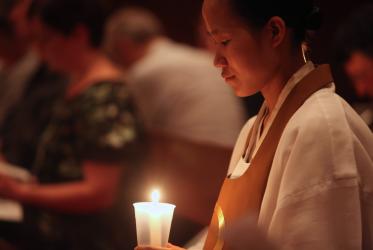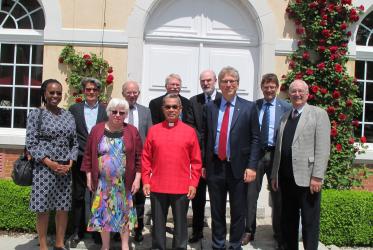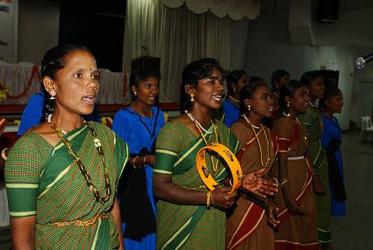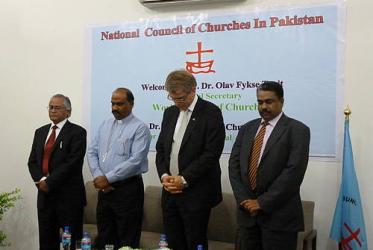Displaying 1 - 18 of 18
Freedom of religion rooted in justice
06 March 2020
WCC general secretary: Iraqi people’s voices must be heard
05 November 2019
A moment in ‘Time’: an interreligious vision in Erlangen
20 December 2018
Walking together against hatred and violence
26 February 2018
Churches in Norway and Pakistan break new ecumenical ground
26 January 2017
Symposium focuses on religion, violence, extremism
04 February 2016
“European solidarity must be strengthened”
29 October 2015
Churches celebrate Week of Prayer for Christian Unity
23 January 2013
Protection of uprooted people is integral to religions
14 December 2012












